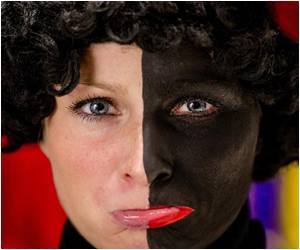How do blacks in the United States develop coping strategies against discrimination, as compared to their white counterparts?

Racial and Gender Differences in Discrimination and Psychological Distress among Young Adults
Go to source). Everyone desires to be treated with respect and courtesy.
As most Americans grow into adulthood, Black individuals often acquire more effective coping mechanisms for dealing with racism compared to their white peers, which could potentially mitigate the impact of these experiences on their mental well-being. This was revealed according to a study by researchers at Duke University.
The study examined the reactions of young men and women in the United States to perceived offenses, microaggressions, and daily humiliations.
“What this study shows is that, by early adulthood, Black men and women have already developed certain resiliency and coping strategies,” said first author Imari Smith, a doctoral candidate in Duke’s Joint Program in Sociology and Public Policy.
Smith and Duke University sociology and global health professor Jen'nan Read share their research results in the journal Social Science & Medicine.
‘Did You Know?
African Americans, also referred to as Black Americans or Afro-Americans, are a distinct cultural group of individuals in the United States, who have ancestral ties to Black racial groups in Africa. #africanamericans #discrimination #medindia’





African Americans, also referred to as Black Americans or Afro-Americans, are a distinct cultural group of individuals in the United States, who have ancestral ties to Black racial groups in Africa. #africanamericans #discrimination #medindia’
Advertisement
Discrimination: Effect on Mental Health
On June 24, a study was published in which the researchers used the data from a University of Michigan survey of young adults, known as the Panel Study of Income Dynamics Transitioning to Adulthood Supplement. The study aimed to examine the impact of everyday discrimination on the mental health of 3,894 individuals aged 18 to 28.Every individual responded to inquiries regarding the frequency in which they encountered different types of prejudice or unfair treatment in their daily experiences, ranging from receiving inadequate customer service in establishments to sensing that their intellect or reliability was being doubted.
A large proportion of young adults, who were surveyed, indicated that they have encountered similar situations at some point or the other. Within this group, Black men and women revealed that they had encountered these incidents more frequently compared to their white counterparts, with occurrences happening at least once a week.
Furthermore, all of the participants responded to inquiries regarding their mental health, including the frequency of experiencing sadness, anxiety, hopelessness, and feelings of worthlessness. The findings indicate that as individuals transition out of adolescence, even minor rejections, when ignored, may lead to adverse impacts on mental well-being.
“Everyday discrimination -- or even just the perception of it -- can have real implications,” Smith said.
Advertisement
Response to Discrimination: Black and White Individuals
In general, individuals who experienced lower levels of courtesy, respect, or trust tended to have higher levels of anxiety and depression. However, the impact on mental health was less pronounced for Black individuals compared to white individuals, especially white men. Essentially, white individuals found these experiences to be more psychologically distressing.“This is not to say that discrimination is more harmful for white men,” Smith said.
Instead, the results suggest that white young adults might have lower resilience compared to their Black peers, or they may struggle more to manage such experiences mentally and emotionally. These incidents may be more stressful to white individuals who perceive them as a threat to their social status. This phenomenon is referred to as "status threat."
The researchers also mentioned that the variation in resilience between Black and white individuals could be attributed to differences in exposure.
Advertisement
How Black Individuals Overcome the Stress of Discrimination
“Discrimination is considered a social stress,” Smith said. The impact of stress could be more severe for individuals who have less experience handling it or lack the necessary coping mechanisms.In contrast, for Blacks, certain types of discrimination are a common occurrence in their daily lives. “It's not a new stressor,” Read said.
By the time they reach young adulthood, Blacks may have acquired techniques for identifying and addressing perceived unfairness that are not present in whites.
To clarify further, “discrimination hurts everybody,” Read added. “Whether you're white, Black, male or female, the effects of the discrimination on mental well-being are taxing.”
This study demonstrates that “the psychological effects of discrimination start to emerge early in life,” Smith said. But also, "some people develop coping mechanisms that can buffer the effects, at least in the short-term.”
It is interesting to see how individuals adjust and develop resilience when confronted with challenging situations.
Reference:
- Racial and Gender Differences in Discrimination and Psychological Distress among Young Adults - (https://www.sciencedirect.com/science/article/pii/S0277953624005239?via%3Dihub)
Source-Medindia









